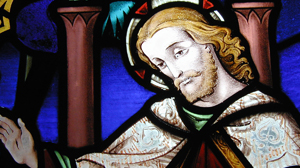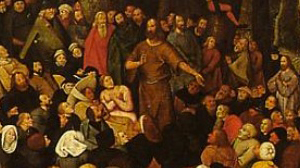Scripture:
Jeremiah 20:7-9
Romans 12:1-2
Matthew 16:21-27
Reflection:
“He turned and said to Peter, ‘Get behind me, Satan! You are an obstacle to me. You are thinking not as God does, but as human beings do.’” Matthew 16:23
Most of the time we all think as human beings, because we are human beings! Early this morning God reminded me that I need to trust Him enough to quit seeing things as they appear and let Him be God!
We are in the process of setting up a manufactured home on a piece of property and every day, it seems, something sets us back. We started the process in February when we bought the land. Our home was finished on June 3rd, but it is still sitting in storage somewhere. We have moved twice since waiting for our home to be finished and are just praying that it will be finished before this lease is up!
Jim got a phone call yesterday, and the contractor informed him that his rig had broken down, so they had to get fixed before continuing to prepare our site. I immediately began to grumble and complain because I was thinking as a human being, upset that something else had gone wrong.
Then very early this morning the Lord showed me that when we got that phone call yesterday He was saying, “Come on honey, you can do it! Just say, ‘It’s OK! God has a plan and He is in control.’” It was so encouraging to me that He is trying to help me trust Him even in the frustrations of this time of waiting and testing. He longs to help me grow and mature in my faith. He helped me see that I need to plan ahead for when the next discouraging word comes. I need to be ready to say, “It’s really ok! God can work everything for good.”
When I woke up this morning, I was inspired to write:
“Live today well… walking hand-in-hand with your loving Father; spending time with Jesus your brother, Savior and friend; and letting the Holy Spirit breathe life into your thoughts, words and deeds.” Truly, I need to live more in the moment, savoring life today and praising God for His ever present help and His amazing personal love for each of us.
Janice Carleton and her husband Jim live in Bainbridge Island, Washington, and partner with Passionist Fr. Cedric Pisegna in Fr. Cedric Ministries. She is the mother of 4 grown children and grandmother of 6. Janice also leads women’s retreats and recently published her second book: God IS with Us. Visit Janice’s website at http://www.janicecarleton.com/ or email her at [email protected].







